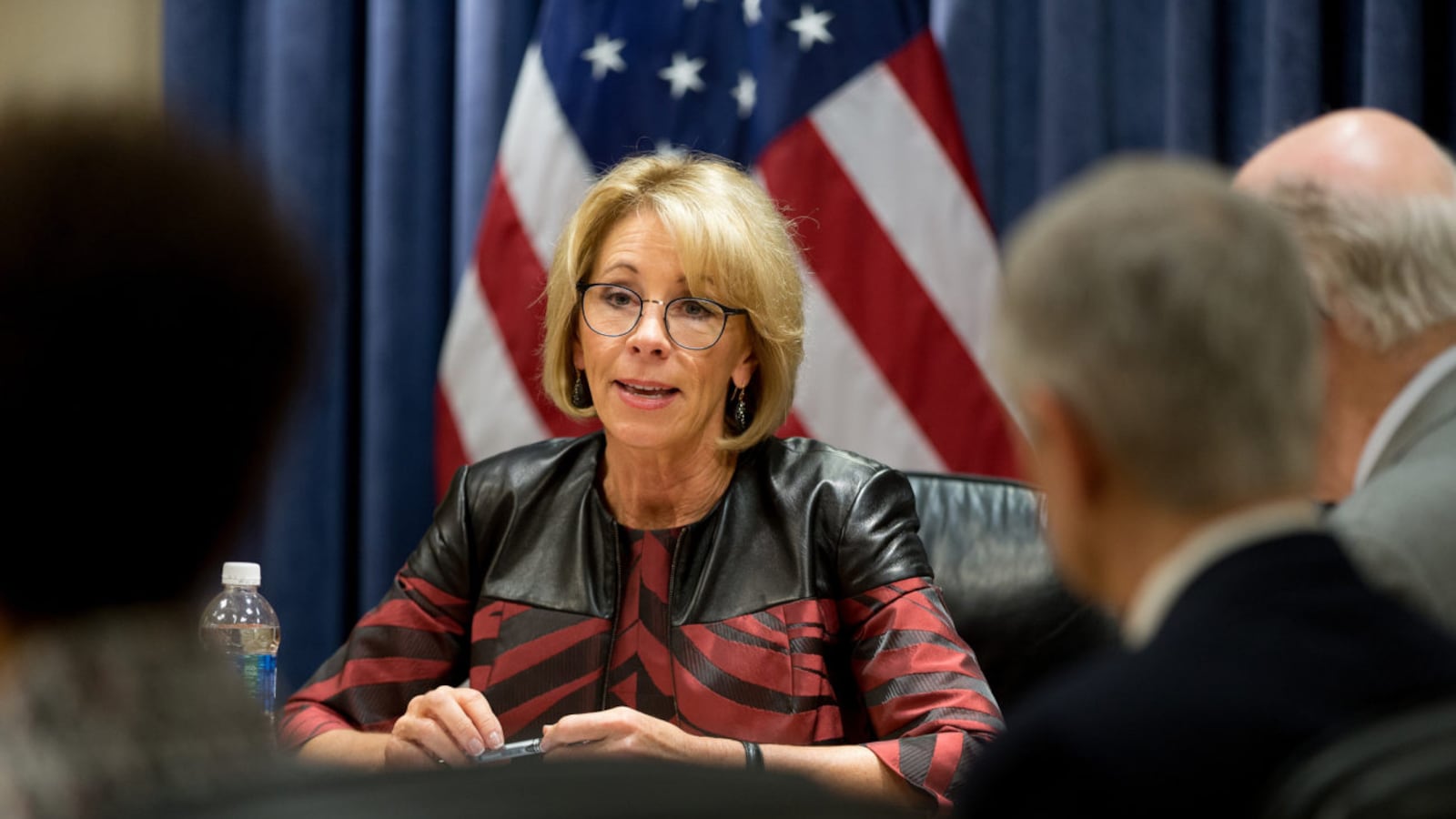The just-passed tax law includes a big perk for families who send their children to private school: the ability to use certain tax-advantaged savings accounts, which until now could only be used to save for higher education, to pay for K-12 school, too.
That’s led to criticism from those who note that the wealthy stand to benefit the most and that local public school budgets could take a hit, and support from school choice advocates like Betsy DeVos, who argue it will expand access to private schools.
But there’s reason to believe that the move won’t make private school feasible for any more families — and that private schools are likely to raise tuition in response.
Here’s why: All families are eligible to use the saving accounts, known as 529s. That means unlike a lot of state programs that offer private school vouchers or tax credits, the 529s aren’t targeted at poor students, those with a disability, or other specific groups.
In a peer-reviewed 2016 study, researchers compared the effects of these two types of choice programs: those that are restricted to certain populations and those available to all. The latter group — that is, programs like 529s — didn’t lead to any increase in students attending private school, but did cause a sharp hike in school tuition.
This suggests these programs don’t function the way some advocates want them to. Instead of adding choices for families, they offer a windfall to schools. (Keep in mind that students could still benefit if private schools use that extra money to improve the quality of education they offer.)
There is one important reason why private schools may not react to this change in the same way. Although all families will technically be able to use the new 529 rules to save for private school, in practice, only families with enough money to put extra into one of the accounts will be able to participate. In that sense, it could function more like a targeted program, and those have been found to boost private school attendance.
In praising the initiative on Tuesday, DeVos acknowledged the fact that the program is unlikely to benefit poor families.
“Anything that empowers parents and gives them more opportunities for their students is a good thing,” she said. “But it doesn’t address the needs of parents who are from lower incomes and doesn’t empower them in significant ways.”


